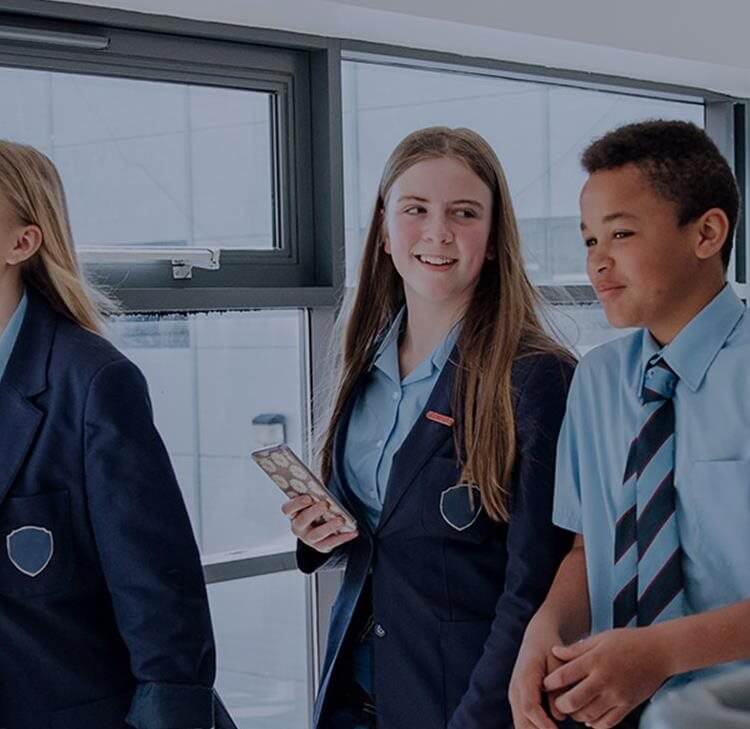Fire safety in the higher education sector: looking back and looking forward
Fire safety regulation is undergoing a period of evolution, with many new & far-reaching fire safety developments having significant implications for those responsible for educational premises.
Fire safety regulation is undergoing a period of evolution and, as 2021 drew to a close, now is a good opportunity to take stock and take a forward look to what the year ahead may hold.
2021 began as it meant to go on with new and far-reaching fire safety developments (many with significant implications for those responsible for educational premises) coming thick and fast.
In February 2021, Peter Baker was appointed as the Chief Inspector of Buildings. The role involves, in the words of Building Safety Minister Lord Greenhalgh, creating “a tougher regulatory regime” to drive “the biggest changes to building safety in a generation”.
The new regulator will be charged with implementing a more stringent regulatory regime for high-rise buildings in England, a regime that will affect existing and future student accommodation that falls within the new regime’s scope.
The likely nature of this new regime became clearer with the introduction to parliament, on 5 July 2021, of the Building Safety Bill. The Bill is intended to lay the foundations for a strengthened regulatory regime for high-rise and other higher-risk buildings, improving accountability, risk-management and assurance. Importantly, the Bill, as introduced, makes clear that its scope can be further extended through secondary legislation if the Building Safety Regulator considers it appropriate.
Changes proposed that will affect the higher education sector include a new statutory definition that identifies ‘Accountable Persons’ for occupied higher-risk buildings. Accountable Persons include landlords and freeholders who are in charge of repairing the common parts of the building (including the freeholders of student accommodation).
The Accountable Person will have statutory obligations for managing building safety risks, including appointing a single Building Safety Manager for the whole building, establishing and operating a system for mandatory occurrence reporting, and applying for registration and certification for the whole building, including bringing together a single safety case report.
In June 2021, the Government published a consultation on proposals to implement the Grenfell Tower Inquiry Phase 1 Recommendations on Personal Emergency Evacuation Plans (PEEPs). Under these proposals, the owner and manager of every high-rise building would be required by law to prepare PEEPs for all residents whose ability to self-evacuate may be compromised, and to include information on persons with reduced mobility and their associated PEEPs in an information box on the premises, readily available to firefighters. This requirement will apply to high-rise student accommodation. At time of writing, it is not clear when the Government intends to publish legislation implementing these measures.
Alongside these changes the British Standards Institution is developing three built environment standards to support the Building Safety Bill and to raise competence for the newly-regulated roles of Principal Designer, Principal Contractor and Building Safety Manager.
Looking forward to 2022, what new fire safety developments can we expect?
Royal assent for the Building Safety Bill is not anticipated before July 2022 at the earliest, with the phased introduction of the measures it proposes over several years, but a running theme throughout 2021, from regulators, has been the call for those responsible for high-rise buildings to prepare now in anticipation of the measures to come.
In October 2021 the Health and Safety Executive (HSE) published guidance titled “Safety case principles for high-rise residential buildings” and, in December, the HSE’s Chief Inspector of Buildings stated:
Safety case reports are a new approach modelled on that used under the Control of Major Accident Hazards Regulations (COMAH). The new approach requires those responsible to take a more involved, more self-critical approach to fire safety. A safety case report must identify major fire/structural hazards, what measures are in place to control risks from these hazards and how these measures are maintained, what checks are in place to ensure the measures work, and how the safety case itself is kept up to date. The Accountable Person will be responsible for ensuring the Safety Case Report is complete and up to date and submitted to the Building Safety Regulator for assessment.
Research by the HSE has demonstrated that COMAH has significantly changed the way major accident hazards are managed, and that this would have been very unlikely without the regulations being implemented. However, the change has come at a significant cost. For the higher education sector, while the proposed new measures may imply additional cost, the ultimate objective is a culture change in respect of fire safety and this cannot be bought off the shelf.
At time of writing, the ongoing Phase 2 Grenfell Inquiry is scheduled to conduct hearings up to the end of May 2022, which would imply that it is unlikely a Phase 2 report would be published before the end of 2022. The inquiry will continue to serve as a constant reminder of what is at stake for those residents of high-rise buildings that these measures are intended to protect.
HSE is putting those responsible for educational premises on notice now that 2022 will be a time of new responsibilities and increasingly demanding fire safety regulation. Institutions that bury their heads in the sand are likely to get short shrift for failing to prepare for what is coming.
This article was first published by University Business on 21 January 2022.
Related expertise
You may be interested in...
Online Event
Wellbeing and financial considerations – practical solutions for challenging times
Legal Update
be connected - Spring 2023
Legal Update
Teacher strikes – lessons learnt so far
Opinion
Can toilet facilities amount to sex discrimination?
Legal Update
New support launched to manage school complaints
Legal Update
Cyber security and data breaches
Legal Update
#EdCon2023 virtual event hailed a success
Online Event
Flexible working in schools webinar
Legal Update
What does the new Provider Access Legislation mean for schools?
Legal Update
High Court dismisses Welsh RSE right to withdraw claim
Opinion
Term-time school worker entitled to national minimum wage for unworked basic hours
On-Demand
Industrial action essentials: what you need to know
Legal Update
Education Software Solutions Limited breaks against the CMA’s intervention: A victory for freedom and flexibility in contracting for MIS services
On-Demand
The Subsidy Control Act 2022. Putting the new regime into practice
Legal Update
Safeguarding at scale report published
Legal Update
Trade unions announce plans to re-ballot members
Legal Update
Widespread industrial action now confirmed for schools
Legal Update
Industrial action and minimum service levels within education
Opinion
Consultation on holiday entitlement – part-year and irregular workers
Guide
FAQs - converting to academy status
Guide
FAQs - becoming a sponsored academy
Guide
FAQs - becoming an academy sponsor
Guide
FAQs – single academy joining a MAT
Legal Update
EdCon2023 launch: Thursday 12 January
Legal Update
The importance of understanding the transitional provisions under the Electronic Communications Code
Legal Update
Biodiversity Net Gain: positive for nature and an opportunity for landowners
Legal Update
Discrimination comes of age
Guide
#EdCon2023: Access a range of expert guidance and resources at our FREE virtual conference
Legal Update
be prepared for the 2022-23 academic year
Legal Update
Teacher Pay Survey 2022
Legal Update
be connected newsletter for schools - Winter 2022
Guide
Good governance essential to avoid falling foul of the ESFA
There’s been little evidence of interventions or financial management reviews this year and it appears the Education and Skills Funding Agency (ESFA) has re-focussed on financial delivery. It’s also telling that there were no discernible changes to the reporting of financial irregularities in the Academies Trust Handbook 2022.
Legal Update
Children's commissioner recommendations for SEND reform
The Children’s Commissioner, Rachel De Souza, has recently published a report “Beyond the labels: a SEND system which works for every child, every time”, which she intends to sit alongside the DfE’s SEND Review (2019) and SEND Green Paper (2022) and which she hopes will put children’s voices at the heart of the government’s review of SEND system.
Legal Update
School complaint management - exploring a new way forward
There’s greater opportunity than ever for parents, carers and guardians to voice any concerns they have relating to their child’s education and for their concerns to be heard and to be taken seriously. While most staff in schools and academies are conscious of their legal duties relating to complaints management, many are struggling to cope with such a significant increase in the volume of complaints they must manage.
On-Demand
The UK's green agenda - the outcomes of COP27 and actions since COP26
Guide
Setting up a trading subsidiary – a guide for academy trusts
We’re pleased to collaborate with Lloyds Bank, who recently asked us and audit and risk specialists Crowe UK to offer guidance that academy trusts would find helpful when considering setting up a trading subsidiary.
Legal Update
DfE Trust Capacity Fund
The DfE has published new guidance and opened the application process for window two of the Trust Capacity Fund (TCaF) for 2022/2023, with a fund of £86m in trust capacity funding focused particularly on education investment areas.
Guide
The Independent Inquiry into Child Sexual Abuse - A guide for schools and trusts
The Independent Inquiry into Child Sexual Abuse was established in March 2015. We now have its report. As you would expect with such a broad scope, the report is long and makes a number of far-reaching recommendations. In this article, Dai Durbridge highlights seven of the 20 recommendations, sets out how they could impact on schools and suggests what steps to take now.
Press Release
Law firm picks up record breaking sixth Education Investor Award
Browne Jacobson’s education team has been named as winner of the ‘Legal Advisors to Education Institutions’ category at the Education Investor Awards 2022 for a record sixth time.
Legal Update
Managed moves between schools
Since the new Suspensions and Exclusions Statutory Guidance was published, we have received a lot of questions about the use of managed moves. For the first time, the Statutory Guidance does explain what a managed move is, but in relatively broad terms and does not cover the mechanics of how a managed move should operate.

.jpg?variant=HeroImageTabletVariantDefinition)




























